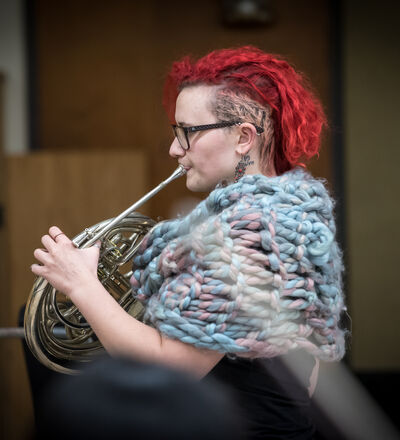

Classical Core Curriculum
Overview
The Faculty of Music offers two undergraduate degrees: the Bachelor of Music (Mus.Bac.) and the Bachelor of Music in Performance (Mus.Bac.Perf.); both require the completion of 20.0 credits.
Students admitted to the Bachelor of Music in Performance (Classical) begin their specialization in first year. Those admitted into the Bachelor of Music into Composition, Interdisciplinary Music Studies and Music Education begin their specialization in Year 1. All other other Bachelor of Music students enter an Exploratory Year (previously Common Year) during which they embark on their core requirements and explore options to help determine their specialization for the following academic year. Students intending to pursue Composition, Interdisciplinary Music Studies, or Music Education also have the option of beginning their specialization in Year 2, after completing the Exploratory Year.
Specializations:
- Composition
- History, Culture & Theory
- Interdisciplinary Music Studies
- Music Education
Core courses
All music students complete a set of core requirements comprised of courses drawn from history, theory, and performance. This core curriculum constitutes a prescribed educational foundation that all students will have in common.
Program specific courses
Each program requires the completion of specific program requirements. These courses are intended to provide depth in the chosen area of study. The requirements for each specialization are indicated within the Academic Calendar (by program). It is recommended that students enroll in the appropriate courses indicated in the chart corresponding to their program and year of study. While a certain degree of flexibility is possible, students are encouraged to plan their proposed course loads in advance, in order to ensure successful completion of the program in the prescribed number of years.
Music electives
Each program requires the completion of a specific number of Music electives. These are Music courses (excluding Basic Music courses) that are not required for your specialization. Music electives can provide further depth, or breadth within your area of study.
Students have the option of working towards a Certificate(s), in conjunction with the degree. Certificates are a sequence of Music courses within specific areas outside of existing Music Programs and Specializations. Currently there are Certificates offered in:
- Health Applications in Music
- Music Technology
- Popular Music Studies and Ethnomusicology
- Popular Music Studies and Ethnomusicology with Ensembles
- Piano Pedagogy
The course requirements for each of the Certificates are listed on the "Certificates" section of the Academic Calendar. Courses completed as part of the Music Elective requirement can be counted towards Certificate requirements. In some cases, additional courses beyond the Music Elective requirement must be fulfilled to complete Certificate requirements.
Students also have the option of working towards a minor within Music; currently there are Minors offered in:
- History and Culture
- Composition (Classical)
- Historical Keyboard
The course requirements for each of these programs are listed below the table in the corresponding to the specialization in that area. Students are not required to complete a Minor towards their degree. However, for those interested in taking advantage of this option, the Minor will substitute for the Music Electives required for their program.
Breadth electives
Every Music student is required to take electives outside the Faculty of Music, thus satisfying the breadth requirements of the degree. A vast selection of courses is offered by the Faculty of Arts & Science. In many cases, Arts & Science courses complement and strengthen a student’s chosen Music specialization.
A minimum of 4.0 credits in Breadth Electives must be completed, with the exception of the History, Culture & Theory specialization that requires 5.0 credits and the Interdisciplinary Music Studies program that permits up to 8.0 credits. Within the Breadth Electives, a required minimum of 3.0 credits must be from courses in the Faculty of Arts & Science, with the exception of the specialization in History, Culture & Theory, which requires at least 4.0 credits.
Students are free to choose from any of the courses offered by the Faculty of Arts & Science, that sparks their interest, provided prerequisites and corequisites are met. Additionally, students are able to use these breadth electives towards completing a Minor or Major in a given discipline within the Faculty of Arts & Science.
For those interested in taking additional Music courses, 1.0 credit of the Breadth Electives may be from a prescribed list of academic Music courses listed within the program specific chart in the Music Academic Calendar.
Genre & style requirement
The Faculty of Music offers a number of courses that explore repertoire from other traditions, and the intersection of Music with other socio-cultural factors and constructs. In order to ensure that students are exposed to a wide variety of perspectives and Music, students are required to complete a 0.5 credit Genre/Style requirement as part of their 20-credit requirement. This can be completed through an academic course, focusing on repertoire outside of the Classical/Jazz idioms, or through enrolment in an ensemble that focuses on Music from other traditions.
Genre/Style Electives are from a prescribed list of Music courses listed within the program specific chart in the Music Academic Calendar.